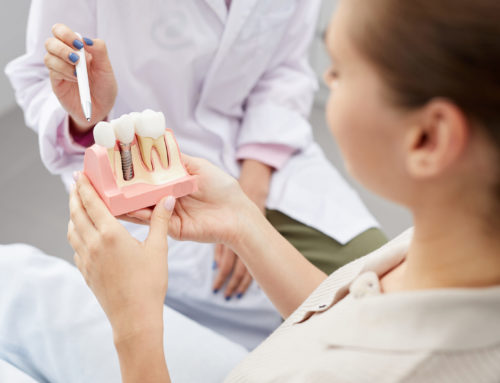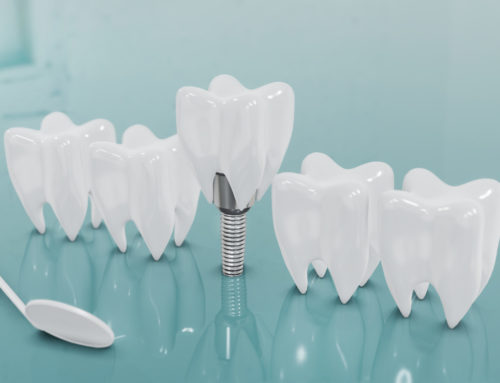What Are Implants?
Dental implants are highly-effective tooth root replacements composed of quality titanium, which is chosen due to its ability to osseointegrate or fuse with bone. For single-tooth replacements, a dental crown that functions and looks like a natural tooth is attached to the titanium implant. Implants may also be used for the anchoring of multiple implants, like All-on-4 for example. When an implant fuses with your jawbone, it stabilizes that bone and provides the stimulation that was once given by the natural teeth. Dental implants are proven to be a highly effective solution to missing teeth (99% effective), and usually last for at least 40-50 years; however, today’s implants are designed to last a lifetime if they’re properly cared for and maintained.
Maintaining Bone Mass and Tooth Support
When you lose teeth, you may eventually lose jawbone mass as well. Bone is living tissue, and under ideal conditions, it continually dissolves and regenerates. However, stimulation via contact between upper and lower teeth happens hundreds of times every day, keeps bone disintegration and regeneration in balance. Implants provide this same stimulation to bone as natural teeth do, which ultimately helps maintain bone mass and dental support.
What Happens if Missing Teeth Aren’t Replaced?
When a tooth is missing, the bone that typically supports and surrounds the tooth stops receiving the stimulation it needs to rebuild, and it gradually diminishes in size and strength. In the first year after losing a tooth, the bone that surrounds the area may decrease in width by up to 25%. Over time, accelerated bone loss may result in sunken lips and cheeks, causing you to look older than your natural age. Gum tissue may also decrease in size, affecting your ability to speak and chew properly. However, dental implants can prevent this from taking place, and they will ultimately restore your normal facial appearance.
What Happens When You Lose All Your Teeth?
If you lose most or all your teeth due to disease or an accident, you would be considered edentulous, and the effects are often severe. Once the bone around your teeth (called alveolar bone) is lost, the bone tissue beneath it (known as basal bone) is gradually reabsorbed. Eventually, the lower part of your face takes on a collapsed, sunken look. As dental implants prevent alveolar bone loss, they, in turn, also help prevent basal bone loss as well. This results in your face looking more youthful and symmetrical. As bone mass is improved around the face, the true features and natural shape of your face is restored.
Are Implants Better Than Dentures at Preventing Bone Loss?
In a word, YES! Full and partial dentures do not prevent bone loss; in fact, they can exacerbate loss. As a removable denture presses on your gums, bone loss is increased because bite force isn’t transferred into the internal bone structure. Rather, its compressive nature can damage bone tissue with time. This is one reason why dentures may fit poorly after you’ve worn them for a long time. However, these concerns are greatly reduced and/or eliminated with well-placed dental implants.
How OMSH Can Help Improve Your Facial Appearance?
It’s no secret that having implants can ultimately help restore your appearance. In fact, there are many other benefits to having tooth implants. For patients residing in the greater Houston area, connecting with the professional team of OMSH is vital to ensuring dental implants are done correctly. To learn more about implants, or about many other cosmetic and specialized dental procedures from OMSH, contact us for an appointment at tel:832-509-4505.





